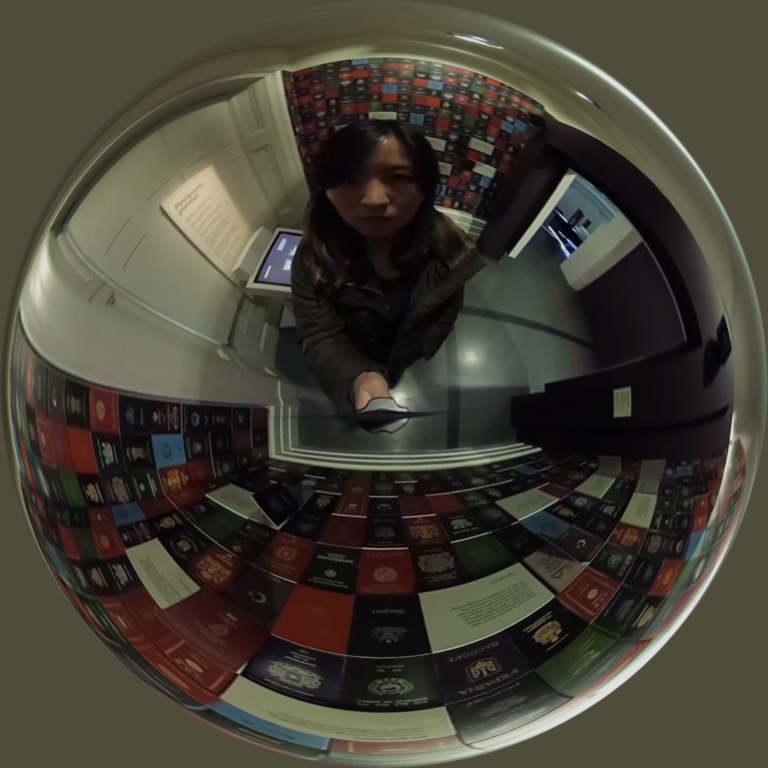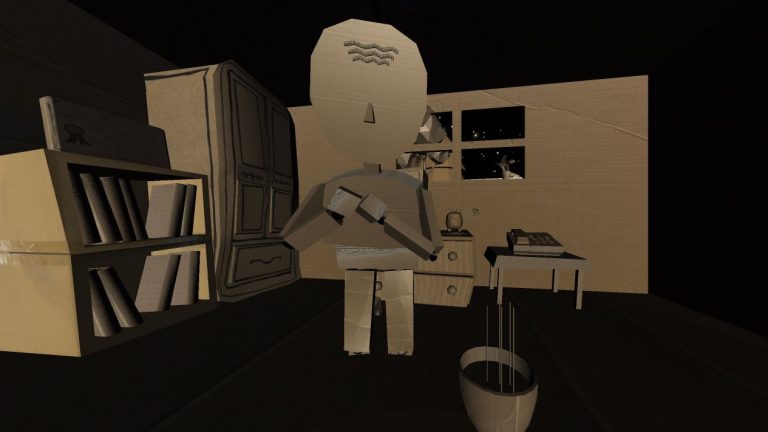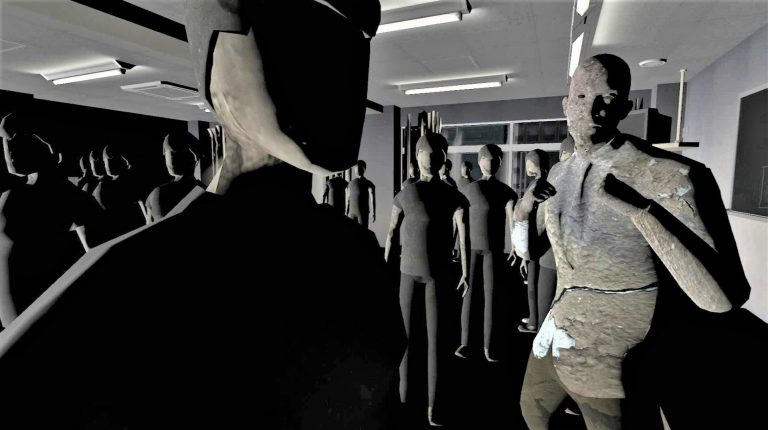This practice-based research explores the reflexive dimensions of cinematic virtual reality (VR) within intersubjective contexts. This presupposes that self is an intertwined and socially connected being. Many artists and filmmakers are embracing VR as a creative medium, attracted to the ways that cinematic VR can, for example, elicit emotional engagement and empathetic identification. However, this carries the potential risk of uncritical acceptance or witnessing another’s pain without self-critical awareness.
While the reflexive dimensions of cinema and new media art have developed through, for example, Brechtian estrangement effects and avant-garde filmmaking techniques, the reflexivity of cinematic VR is yet to be understood sufficiently. Because VR is fundamentally an immersive medium, investigating reflexivity in VR carries the possibility of breaking that immersion. I argue that the VR experience is fundamentally reflexive in nature due to the limitations of immersive engagement, which derives from the technical limitations of the medium and the duality of virtual embodiment. Artists and creators can employ these constraints as estrangement effects that encourage the audience to actively “fill in the gaps” between their physical sensations and virtual perceptions.



